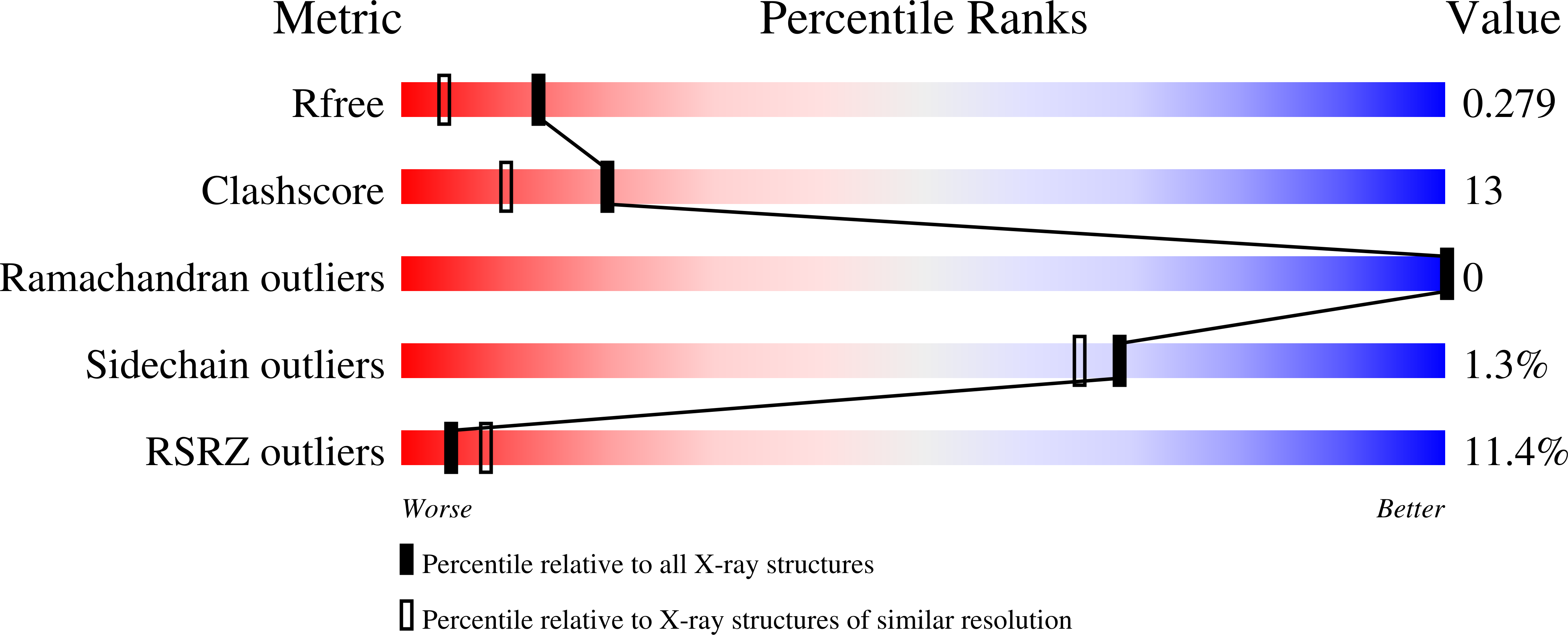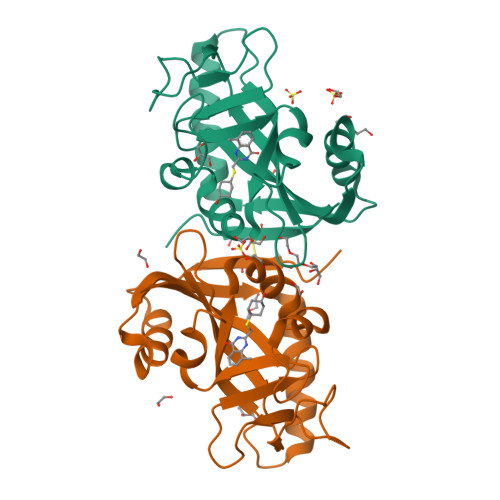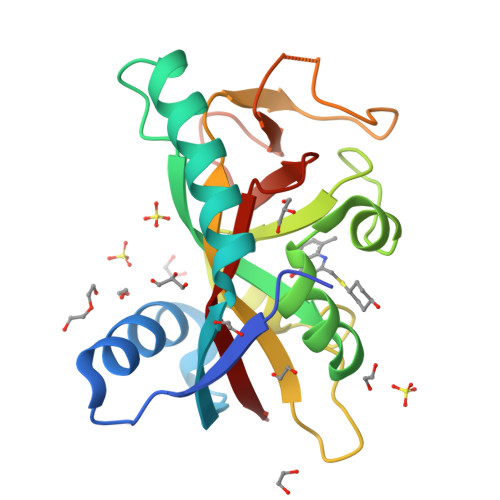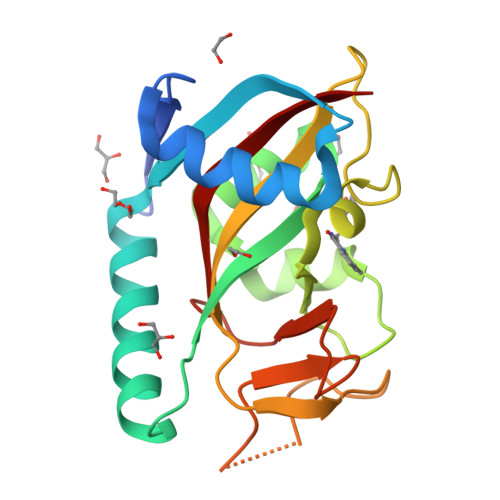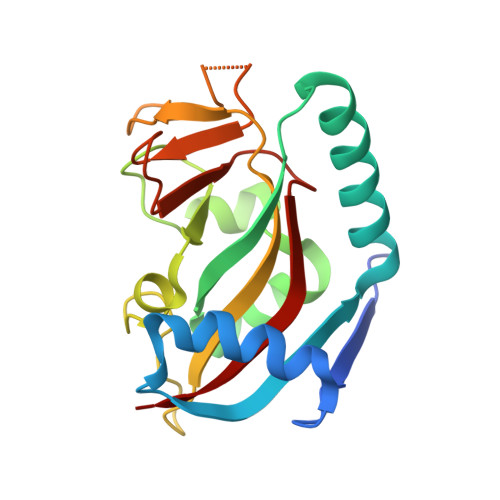A potent and selective PARP14 inhibitor decreases protumor macrophage gene expression and elicits inflammatory responses in tumor explants.
Schenkel, L.B., Molina, J.R., Swinger, K.K., Abo, R., Blackwell, D.J., Lu, A.Z., Cheung, A.E., Church, W.D., Kunii, K., Kuplast-Barr, K.G., Majer, C.R., Minissale, E., Mo, J.R., Niepel, M., Reik, C., Ren, Y., Vasbinder, M.M., Wigle, T.J., Richon, V.M., Keilhack, H., Kuntz, K.W.(2021) Cell Chem Biol 28: 1158
- PubMed: 33705687
- DOI: https://doi.org/10.1016/j.chembiol.2021.02.010
- Primary Citation of Related Structures:
6WE2, 6WE3, 6WE4 - PubMed Abstract:
PARP14 has been implicated by genetic knockout studies to promote protumor macrophage polarization and suppress the antitumor inflammatory response due to its role in modulating interleukin-4 (IL-4) and interferon-γ signaling pathways. Here, we describe structure-based design efforts leading to the discovery of a potent and highly selective PARP14 chemical probe. RBN012759 inhibits PARP14 with a biochemical half-maximal inhibitory concentration of 0.003 μM, exhibits >300-fold selectivity over all PARP family members, and its profile enables further study of PARP14 biology and disease association both in vitro and in vivo. Inhibition of PARP14 with RBN012759 reverses IL-4-driven protumor gene expression in macrophages and induces an inflammatory mRNA signature similar to that induced by immune checkpoint inhibitor therapy in primary human tumor explants. These data support an immune suppressive role of PARP14 in tumors and suggest potential utility of PARP14 inhibitors in the treatment of cancer.
Organizational Affiliation:
Department of Molecular Discovery, Ribon Therapeutics, Inc., Cambridge, MA 02140, USA; MOMA Therapeutics, Cambridge, MA 02142, USA.







